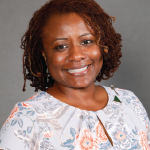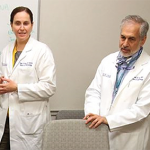
Gustavo Frazao / shutterstock.com
Hazel L. Breland, PhD, ORT/L, FAOTA, CLA, assumes the role of ARHP president in October. She is the 50th person to hold that honor, and the organization’s first African-American leader.
“Several things came together at one time that I didn’t necessarily think about when I was asked what my aspirations in the organization were in terms of executive leadership,” says Dr. Breland, associate professor and academic fieldwork coordinator of occupational therapy at the Medical University of South Carolina (MUSC), where she is also the director of the Dr. Raymond S. Greenberg Presidential Scholars Program. “What I hope to do is continue to have a passion for interprofessionalism and putting that on everybody’s radar, … yet I want to also maintain a focus on those things that are important to me—diversity, inclusion and those who are underserved in rheumatology.”
When Dr. Breland first began attending the University of South Carolina, she thought she might become an electrical engineer, in part because she was skilled at math. But she ultimately chose to pursue occupational therapy (OT). It was during this time she learned the important role OT had played in her father’s life as he recovered from several major on-the-job injuries that required surgery. He worked in construction when she was young.
“I could personally see the benefit of OT and see what this profession does to help people live their lives to the fullest,” Dr. Breland says.
After college, she moved to Washington, D.C., to attend the College of Nursing and Allied Health Sciences at Howard University, where she also trained and practiced at the MedStar National Rehabilitation Hospital. She became invested in rheumatology later, during her doctoral studies at the University of Pittsburgh.
“I received a fellowship, and part of that fellowship allowed me to serve as a research coordinator for a randomized clinical trial for women with fibromyalgia,” Dr. Breland explains. Several of her mentors were ARHP members, and it wasn’t long before she joined the organization and began attending Annual Meetings, presenting posters and giving talks.
Professionalism
“I believe that as a professional, it’s important to be part of professional associations,” she says. “I maintain several professional association memberships, and I can say that my participation in ARHP has really stood out because of the interprofessional nature of the organization. It’s been critical to my personal development, and I find that, as professionals, engagement is important to who we are.”


